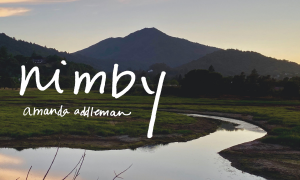Home » Jazz Articles » Download Review » Jazz Age Songs: 372 Free Recordings from the 1890s to 1930s
Jazz Age Songs: 372 Free Recordings from the 1890s to 1930s
Playing them for hours on end might get tiresome, but sampling a handful at a time...is top-rate entertainment
The value of the Jazz Age Songs web site needs no explanation beyond the facts: 372 free songs recorded between the late 1800s and early 1930s, offering a complete history of virtually every pre-swing style from stride piano to ragtime to big band. Plenty of famous names are included, such as early Bing Crosby and Duke Ellington, as are performers as obscure as their scratchy 78rpm discs.
Picking the gems in this collection is almost futile due to its sheer size - I've been having my music player pick a dozen or at random and every time the result is at least several songs I haven't heard previously with interesting traits. Even listening to well-worn stalwarts such as "Second Hand Rose" and "Keep Your Sunnyside Up - often by multiple artists - takes on a new context in this setting.
The text accompanying each song is often as interesting as the music. The following example is the description for the 1928 recording "South" by Benny Moten's Kansas City Orchestra: "Moten recorded this same tune for Okeh Records in 1924, but it was only a so-so seller. If you would like to compare the two, here's the Original 1924 Version of 'South.' The 1928 version was a huge hit, and became the band's signature tune."
As the description notes, a link is provided to the older version, with many other songs offering similar comparisons.
Samplings among the other descriptions: "Dallas Rag" by The Dallas String Band in 1927 ("This group, an early Texas country band, has been called 'the only black string band in history.'"); "(I'm Just Wild About) Animal Crackers" by the California Ramblers in 1926 ("A 19-year-old Abe Lincoln does the trombone work."); and "Any Rags?" in 1913 by Arthur Collins ("this early Edison roll is an excellent example of turn of the XX century 'Coon' songs heard on American Vaudeville stages. 'Coon' songs were meant to be sung in an assumed 'Negro' dialect.").
The songs are compressed into what's known as OGG format, familiar to most digital music junkies but not many general users. Fortunately, very little effort is required for most computer owners to play the files (a number of portable players also support the format). The site gives useful directions on how to do so, complete with links to software that may be required. I downloaded a very small file that allows me to play the songs in iTunes, for example, where I was also able to select and convert them into MP3 format with a single command. The OGG files total about 200mb in size, by the way; converting them to standard quality mono MP3 tracks roughly tripled their size.
The collection is part of NFO.net's Big Band Database Plus web site, which features a large collection of articles, charts and other reference material. For those who don't already have enough history to listen to with this collection, chasing a few links reveals all kinds of other possibilities. The first I came to, more or less at random, was more than 400 Native recordings by Omaha tribes between the 1890s and 1980s stored as part of the Library Of Congress' considerable audio archive.
The drawbacks? There's the obvious hassle of downloading the songs individually from five pages of links. Even though the files are short - almost all less than 1MB - and download almost instantly on high-speed connections, it's labor-intensive. Also, the audio quality, hardly exemplary to begin with, doesn't get many restorative benefits from modern technology as they are encoded at extremely low rates, usually about one-fourth that of an average-quality MP3 song (about equal in fidelity to AM radio). It is worth noting the site's authors strived to preserve as much quality as they could within these limits and they note where problems such as worn grooves or poor source material are a contributing detriment.
I didn't try to listen to and evaluate all of these songs before writing this - there's roughly 17 hours' worth, by my calculation. But as New York Times drama critic Walter Kerr used to write, "You don't have to eat the whole apple to know it is rotten" (a quote actually dating at least back to the 19th century). The theory works just as well in reverse, as the value of this collection as a historical reference is almost too obvious to mention. Playing them for hours on end might get tiresome, but sampling a handful at a time—especially if you have time to peruse various historical references—is top-rate entertainment where even those inclined to dislike such music (guilty) may find themselves wondering how something so old sounds so fresh.
< Previous
Carsten Dahl/Arild Andersen/Patrice H...
Next >
Jumping the Creek
Comments
Tags
For the Love of Jazz
 All About Jazz has been a pillar of jazz since 1995, championing it as an art form and, more importantly, supporting the musicians who create it. Our enduring commitment has made "AAJ" one of the most culturally important websites of its kind, read by hundreds of thousands of fans, musicians and industry figures every month.
All About Jazz has been a pillar of jazz since 1995, championing it as an art form and, more importantly, supporting the musicians who create it. Our enduring commitment has made "AAJ" one of the most culturally important websites of its kind, read by hundreds of thousands of fans, musicians and industry figures every month.



















